Gillian Reinhard ’20
Features Editor
On Saturday, I pledged to spend the afternoon editing my senior thesis, due next week. Inconveniently (but also happily) for me, the Metropolitan Opera hosted its “At-Home Gala.”
It ended up lasting four hours. I didn’t get any work done on my thesis.
As much as I enjoy (and often agree with) the New York Times chief music critic Anthony Tommasini, I found his review of this historic musical event to be somewhat short and anti-climactic. I reasoned that Tommasini probably must stay within some sort of word limit for his editors at the Times. Luckily, the Trinity Tripod (while the College observes social distancing) is under no such obligation, so, here are my thoughts.
Given the tragic circumstances of COVID-19 and the premature ending of the Met’s season two months early, the gala struck a respectful and balanced chord between sadness and joy. Because the United States, and New York in particular, has suffered greatly from the virus, the world’s largest classical music organization, the Metropolitan Opera, has lost an estimated $60 million. The future of the institution is certainly in jeopardy. While the existence of the Met is, of course, an afterthought to the public health crisis gripping the country, it is still a sad state of affairs for those who find comfort and happiness from music. What the Metropolitan Opera ultimately presented in its “At-Home Gala” was an exciting, entertaining, and deeply moving afternoon of classical music.
If you are a fan of late-nineteenth century French opera (as everyone is), then this was the gala for you. My favorite opera, the much-loved but rarely-performed Thaïs by Massenet was featured twice! Other highlights were Stephen Costello singing a Gonoud aria, accompanied by his wife, Met Opera Orchestra violinist Yoon Kwon, Angel Blue singing “Depuis le Jour” from Louise (which is a gorgeous piece of music as sung by a fantastic soprano), and Jonas Kaufmann, the German tenor so rarely seen at the Met, singing an aria from a grand French opera called La Juive I was completely unfamiliar with. I have often wondered if this recent increase in French music at the Met is due to Montreal native Yannick Nezet-Seguin’s rise to the position of music director.
Though I loved the French opera featured, the selections chosen by the artists all veered toward the nineteenth century and the Italian, French, and German repertoire. There were some exceptions to this—such as Tchaikovsky’s Eugene Onegin (Russian) as performed by Michael Fabiano and Dvorak’s Rusalka (Czech) as sung by Sonya Yoncheva. Luckily for me, Eugene Onegin and Rusalka are two of my favorite operas and they were both complimented by beautiful interpretations. With that in mind, however, Onegin is Russia’s most famous opera and Rusalka is an extremely popular Czech work, so it would be hard to argue that they deviate from the repertoire presented at the gala. While I was hoping for countertenor Anthony Roth Costanzo, based on his recent success in Glass’ 1984 opera Akhnaten to present something from this century (or even, at least, the last century), he reverted to a piece by Handel. However, his performance was beautiful and I could hardly complain. Additionally, Costanzo’s energy was palpable as he excitedly greeted the (online) audience. His acting, despite his casual dress and the backdrop of his home in New York, was dramatic and riveting.
Two other joyful standouts were Erin Morley and Lisette Oropesa. Although Oropesa has become very popular at the Met, I had only ever seen her in Massenet’s Werther, and at the time she was not nearly as well-known as Jonas Kaufmann, staring opposite her. Likewise, I was only familiar with Erin Morley from seeing her at the Met in Strauss’ Der Rosenkavalier, but I similarly did not notice her performance, as she was staring opposite Elina Garanca and Renee Fleming, who were retiring from their roles in the opera. Lisette Oropesa, from Louisiana, sang accompanied by a remote friend on the piano, in an impressive piece. Erin Morley, performing from her home in New Haven, accompanied herself on the piano (an impressive task) in a song from the always-popular Fille du Regiment.
One of the best parts of the gala, however, was seeing each musician removed from the typical pomp and circumstance of the opera, and tuning in from their homes. After an extremely emotional rendition of “O Danny Boy” by Matthew Polenzani (again, self-accompanied on the piano!), his family erupted into cheers from their home in Pelham. Polenzani is a true veteran of the Met and this performance reminded me of how underrated he sometimes is. Seeing Diana Damrau, one of opera’s greatest, singing a duet from Don Giovanni with her husband, baritone Nicolas Testé, was particularly fun, especially when their children joined the broadcast to wave at the end of the performance. As is commonplace for the American mezzo-soprano, Jamie Barton sang a truly dazzling piece, and it was funny to see her Harry Potter books on the piano at her home.
It was wonderful to watch the interactions between Italian tenor Ambrogio Maestri, who was accompanied by the Italian conductor Marco Armiliato on the piano. Armiliato is one of the most engaging and dynamic conductors at the Met, and it was great to see Maestri in a role besides Verdi’s Falstaff. More highlights included the fun duet between Roberto Alagna and Aleksandra Kurzak from their home and baritone Gunther Groissbock, who was brought “on stage” earlier than expected due to technical difficulties and was forced to quickly finish his beer. This shouldn’t detract from his outstanding performance, featuring himself on piano next to a bust of Wagner wearing a face mask. There were so many outstanding live performances, and I do wish that the gala could have been concluded by one of those, instead of the pre-recorded Rachmaninoff aria from Anna Netrebko. Although not her fault at all, Netrebko’s internet was not up for the task of the live gala, and she sent in an alternative. This was an awkward and somewhat cold conclusion for a fantastic program. I was quite enjoying the live interactions between musicians as they greeted each other, complimented their colleague’s performances, and introduced themselves to the online audiences.
As mentioned earlier, the two pieces from Massenet’s Thaïs were a highlight of the gala. From their home, Nicole Car and Etienne Dupius sang one of my favorite duets of the opera (and maybe of all opera) in an especially moving performance. Additionally, Met music director Yannick Nezet-Seguin (on piano) and Met concertmaster David Chan (on violin) teamed up for the “Meditation” from Thaïs, one of the most beautiful (and tragic) pieces of music ever written. I can still remember the first time I watched Massenet’s Thaïs—it was the 2007 Met version with Renee Fleming. David Chan was the concertmaster of the Met then as he is now, and his work with the violin was just as devastatingly sublime as it was all those years ago.
This sadness was reflected in some of the most moving performances of the gala. Renee Fleming, from her home in Virginia, sang the “Ave Maria” from Verdi’s Otello, an Italian piece in honor of the country that has been affected by the virus. This was truly wonderful, as Fleming has been retired from the Met stage for a few years now. She retired the role of Desdemona long before that, but she still sounded just as fantastic as she did in the 90s. Her rendition was quiet but incredibly moving, and was absolutely a highlight of the entire program. In a style similar to Fleming, mezzo-soprano Isabel Leonard sang “Somewhere” from Bernstein’s West Side Story, a heartfelt tribute to the city of New York from her apartment in Manhattan. Both Fleming and Leonard nearly welled up with emotion by the end of their respective performances, which added to the emotional intensity of the afternoon.
It was truly Nezet-Seguin, the Met Opera Orchestra, and the Met Opera Chorus who were the stars of the gala. However, the reliable team, who preform endlessly each night of the season at the Met was lacking one member: Vincent Lionti, a violist of the Met Opera Orchestra for thirty years, sadly passed away due to COVID-19 complications. A Juilliard graduate and also the conductor of a Youth Symphony, Lionti was remembered in a touching tribute from the New York Times. The loss of Lionti was palpable throughout the program, but especially during the fantastic performances of the orchestra. The orchestra played a gorgeous rendition of Mascagni’s Cavalleria Rusticana intermezzo and a wonderful interpretation of the famous prelude from Wagner’s Lohengrin.
One of the most moving performances, in my opinion, was Verdi’s “Chorus of the Hebrew Slaves” from the opera Nabucco. This is one of my favorite pieces in all of music. It is somber, reflective, and breathtakingly beautiful. Though Verdi wrote the work to represent the lamentations of the ancient Hebrew people, the ambiguous longing for a homeland and better life resonates with all who listen. From the metaphorical podium, Nezet-Seguin conducted the pre-recorded, online program featuring the Met Opera Orchestra and Chorus, all-in-all about ninety people total. Neither the orchestra nor the chorus at the Met ever gets the credit they deserve, as they are some of the finest musicians in the world, evident from this rendition of one of Verdi’s best pieces of music. I only wish that Met Opera Chorus director Donald Palumbo was given some kind of visual presence and praise for the performance.
In terms of intensity and beauty, only Handel’s “Ombra mai fu” could top the “Chorus of the Hebrew Slaves.” This performance featured mezzo-soprano Joyce DiDonato, Nezet-Seguin conducting, and the viola section of the Met Opera Orchestra. It was an incredibly sad tribute to Lionti. Nezet-Seguin looked as though he was going to cry. The emotion of the musicians demonstrated the comradery and deep respect for colleagues at the Metropolitan Opera. It was the kind of intensity and emotion that is best demonstrated through music. It truly demonstrated the devastating impact of COVID-19, and why the gala was being presented in the first place.
As mentioned earlier, the music was perfect. It was almost as if Nezet-Seguin found my “heavy rotation” playlist on Apple Music and selected pieces from that. Thaïs, Eugene Onegin, Rusalka, Nabucco—it was really just wonderful! At four hours, by opera gala terms, this was fairly short. Met galas in the 80s and 90s could go on for eight hours or more. In addition to Nezet-Seguin and the orchestra and chorus, Peter Gelb and the amazing team of editors who helmed this project should also be commended. Gelb gets his fair share of criticism, but he has truly done a fantastic job leading the Met through these uncertain times. Throughout the four hours, there were hardly any technical glitches, making the event both musically and digitally significant.





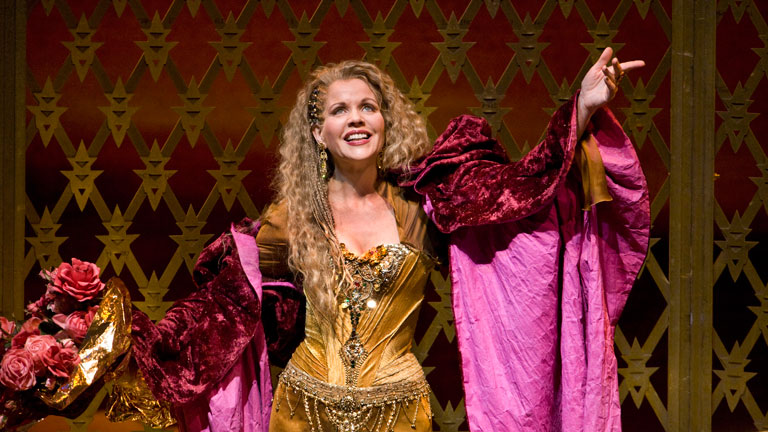
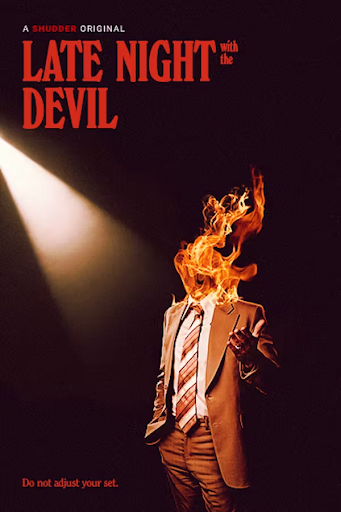
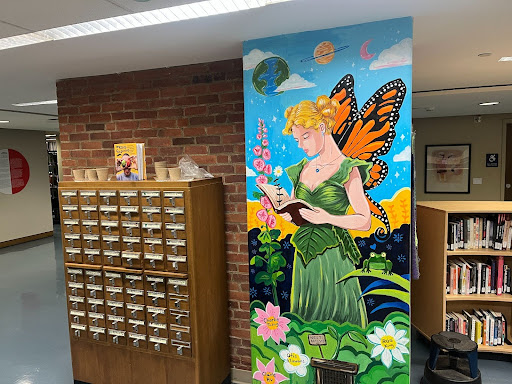
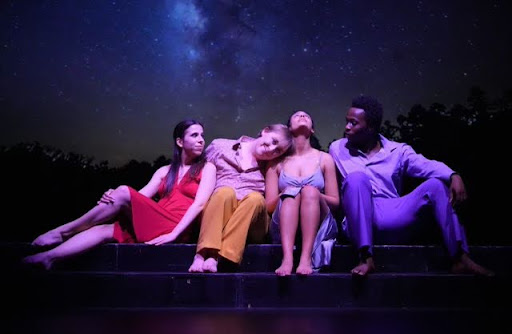
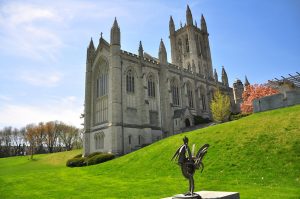
Maria Nockin, Broadway World: Love your wonderfully detailed review. Please keep reviewing when you graduate. There are numerous theatrical and opera publications that would love to have such a knowledgeable and gracious reviewer as you.